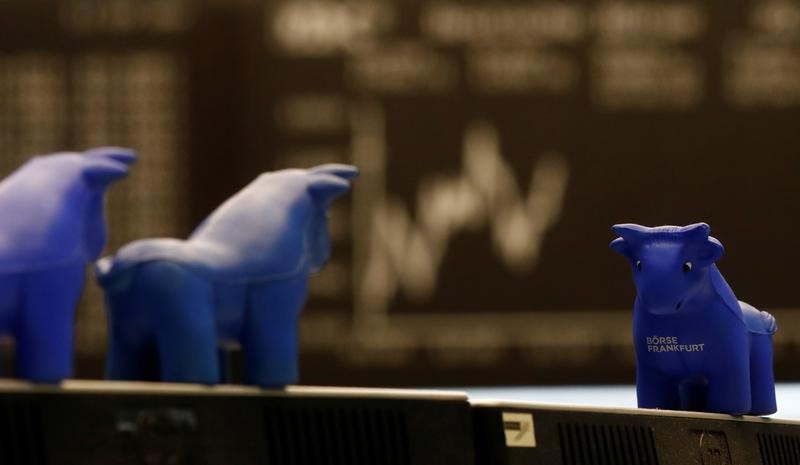By Peter Nurse
Investing.com - European stock markets traded higher Thursday, boosted by a slowing in the growth of German consumer prices while investors digested a flood of quarterly corporate earnings.
At 03:55 ET (08:55 GMT), the DAX index in Germany traded 1.1% higher, the CAC 40 in France gained 1.2%, while the FTSE 100 in the U.K. climbed 0.6%.
German consumer prices, harmonized to compare with other European Union countries, rose by a less-than-anticipated 9.2% on the year in January and by 0.5% on the month, according to preliminary data Thursday.
Analysts had expected this release to grow by 10.0% on an annual basis and increase by 1.2% on the previous month.
Investors, both in Europe and the U.S., have been searching for signs that inflation is peaking, so central bankers can start reining in their aggressive interest rate hikes.
The European Central Bank raised interest rates by half a percentage point last week and signaled a move of the same size for next month.
"If underlying inflation pressures do not materially abate, maintaining the current pace of hikes into May could well remain warranted," ECB policymaker Klaas Knot said on Wednesday.
Elsewhere, the quarterly earnings season continued unabated.
Credit Suisse (SIX:CSGN) stock slumped 5.6% after the scandal-hit Swiss lender booked an annual loss of CHF 7.29 billion (CHF1 = $1.0881), the worst mark since the 2008 financial crisis and its second-straight yearly loss.
ArcelorMittal (AS:MT) stock rose 0.6% after the world's second-largest steelmaker reported fourth-quarter core profit of $1.26B, down from $5.05B a year before, but said it expects its steel shipments to increase by around 5% this year.
AstraZeneca (LON:AZN) stock rose 3.9% after the drugmaker beat expectations with fourth-quarter profits, despite lower-than-expected sales of its best-selling oncology and rare blood disorder drugs plus a decline in sales of its COVID-19 vaccine.
Unilever (LON:ULVR) stock rose 0.3% after the consumer goods group reported sales growth that was only slightly below estimates in the fourth quarter, as higher prices helped offset inflation-linked weakness in customer demand and elevated expenses.
Oil prices steadied Thursday near two-week highs, despite U.S. crude stocks hitting their highest level for months, raising fears of weakening demand in the world's largest economy.
Crude oil stocks in the United States rose 5 million barrels last week to their highest since June 2021, the Energy Information Administration said on Wednesday.
By 03:55 ET, U.S. crude futures rose 0.3% to $78.71 a barrel, while the Brent contract rose 0.4% to $85.42.
Both contracts are up over 3% this week on optimism over a demand recovery in China and following supply disruptions caused by an earthquake in Turkey and Syria.
Additionally, gold futures traded 0.3% higher at $1,895.80/oz, while EUR/USD traded 0.4% higher at 1.0752.
